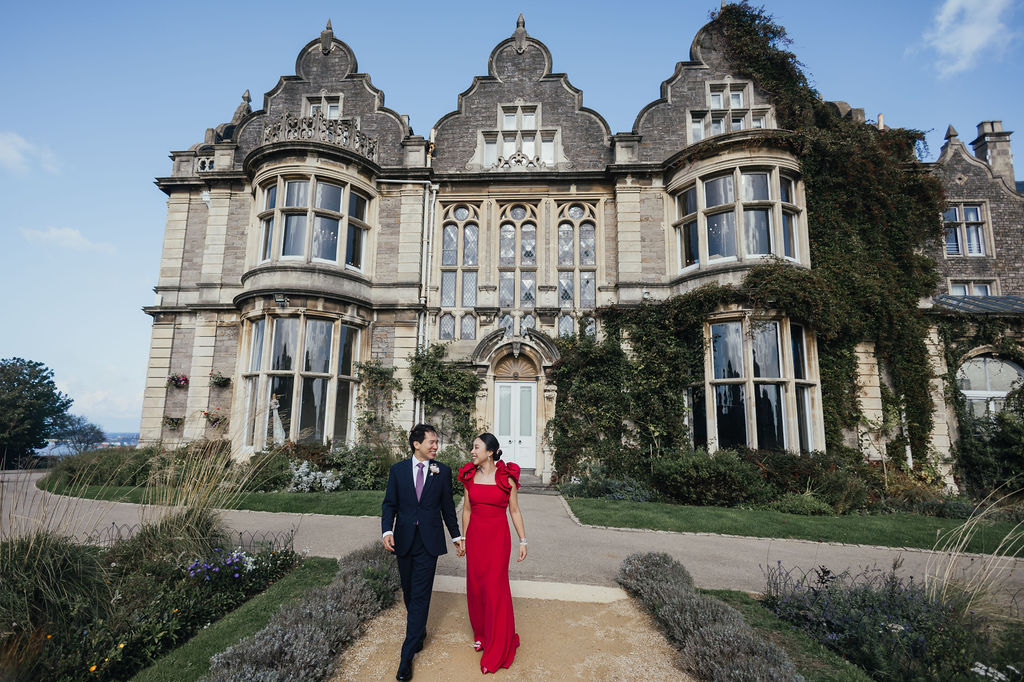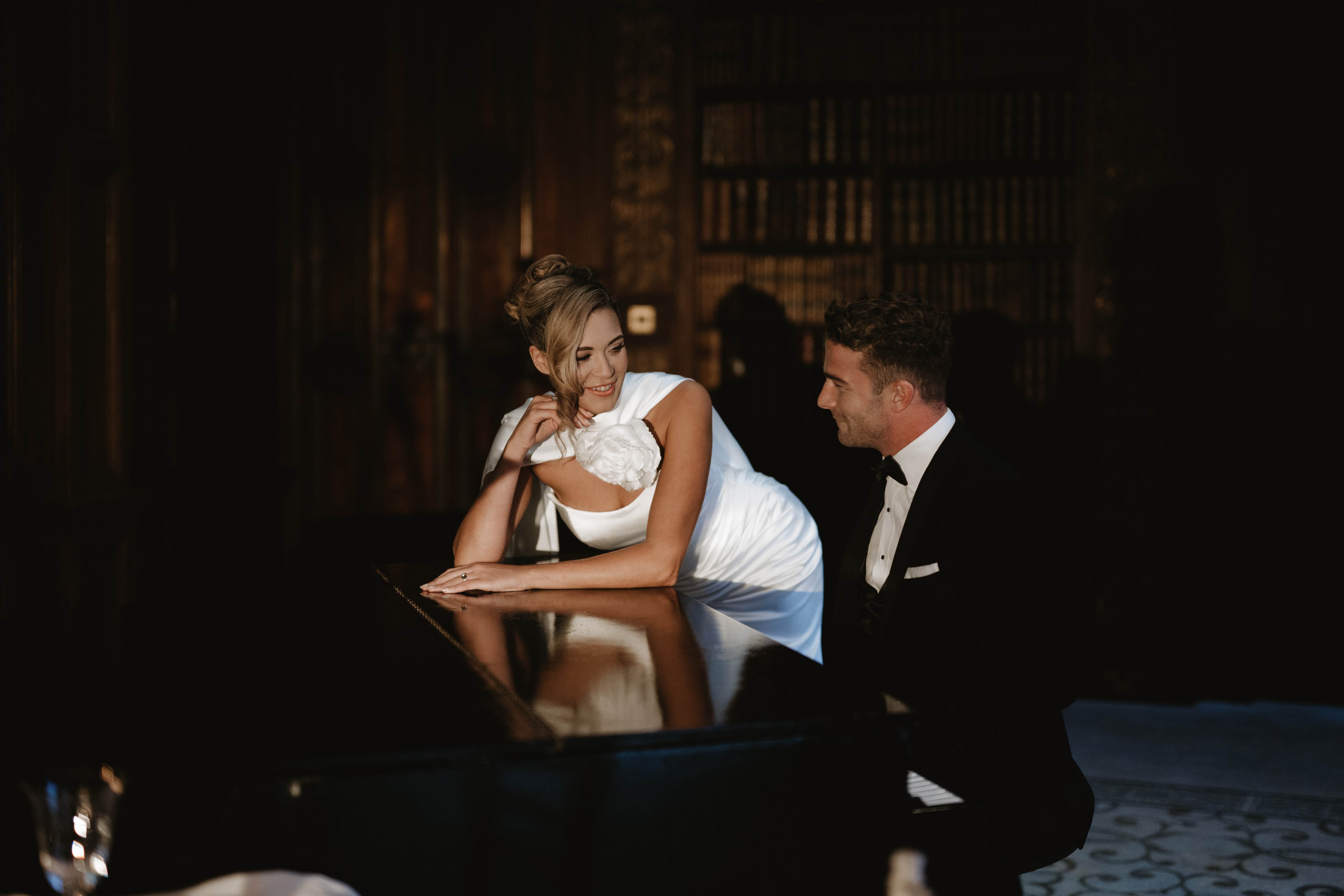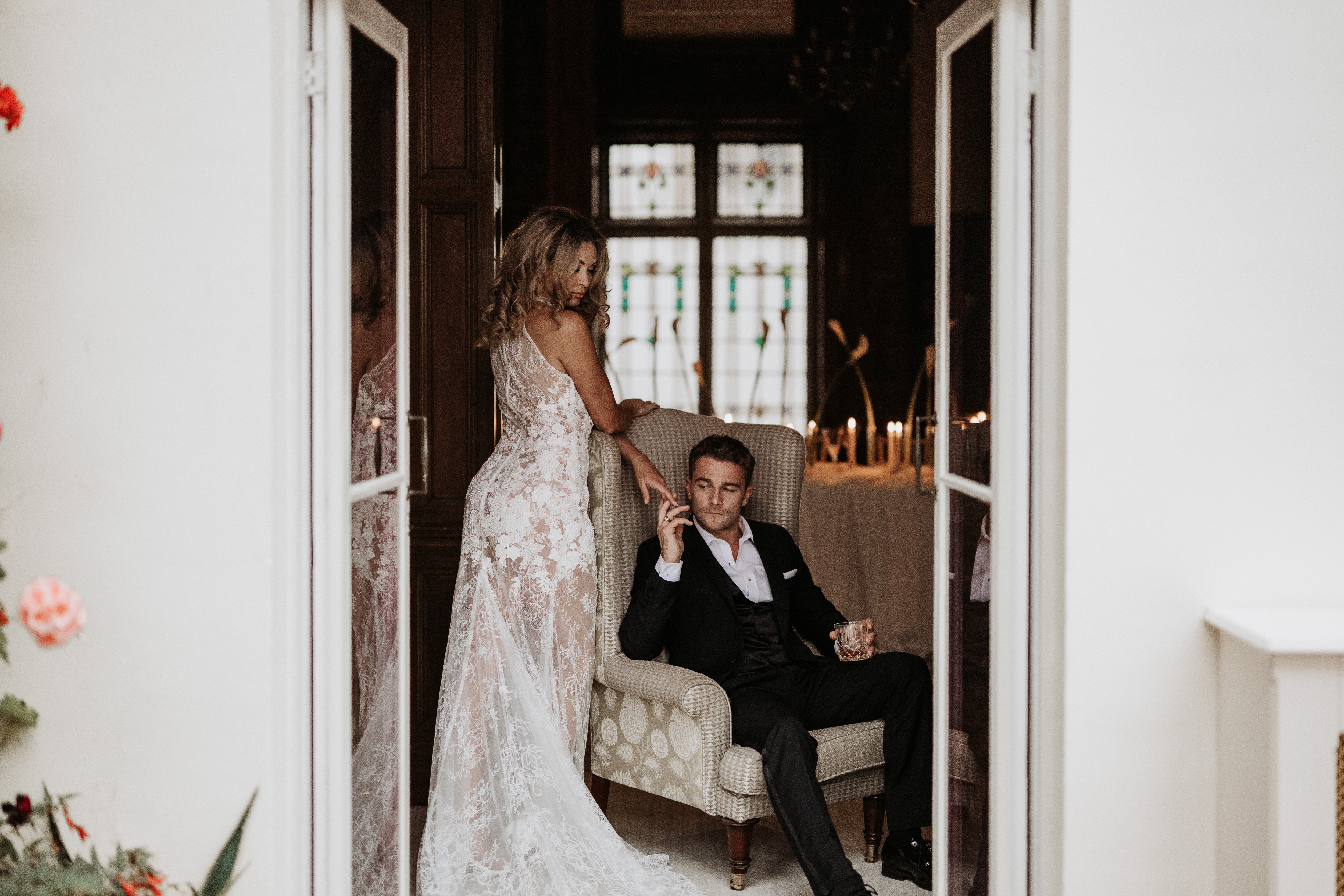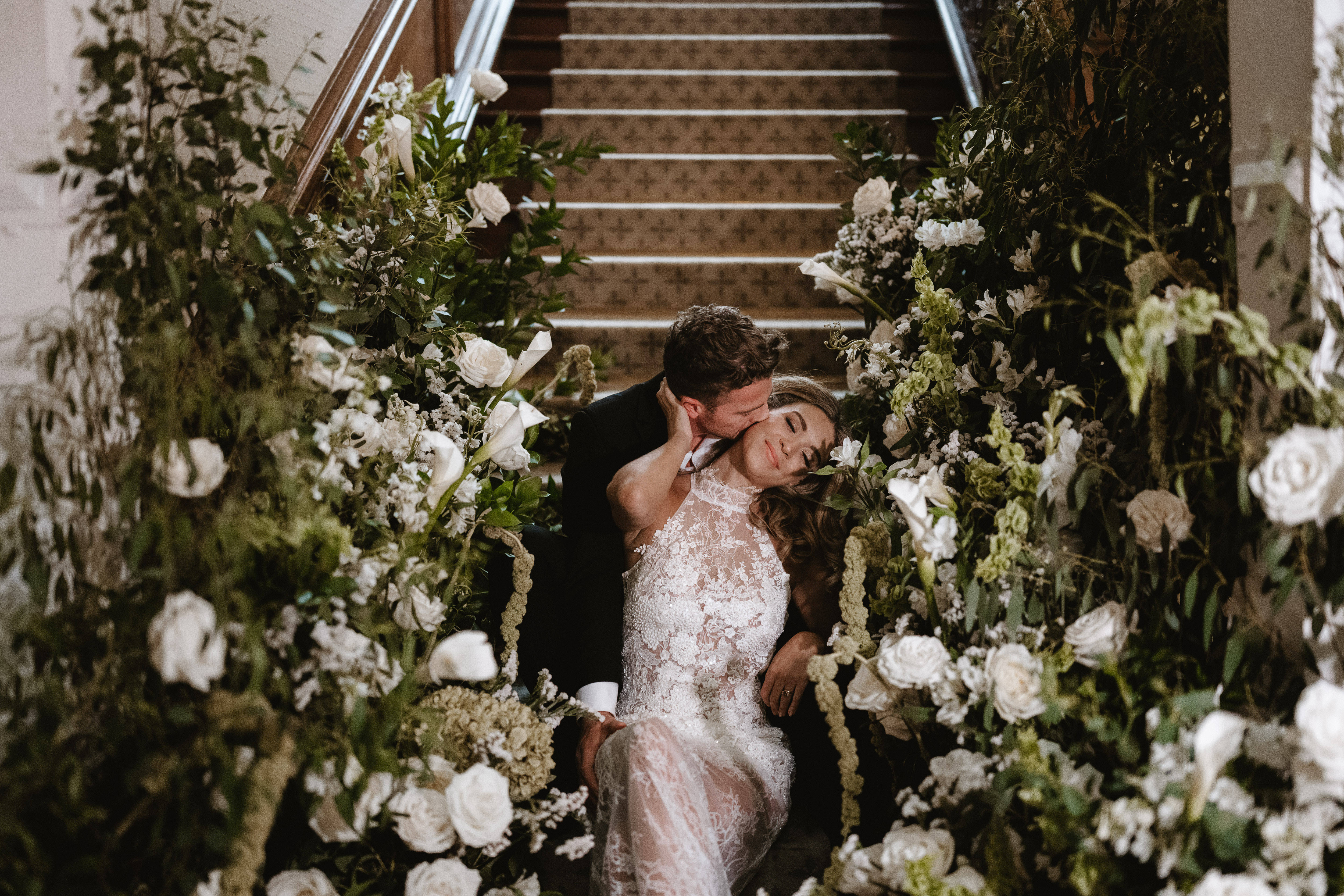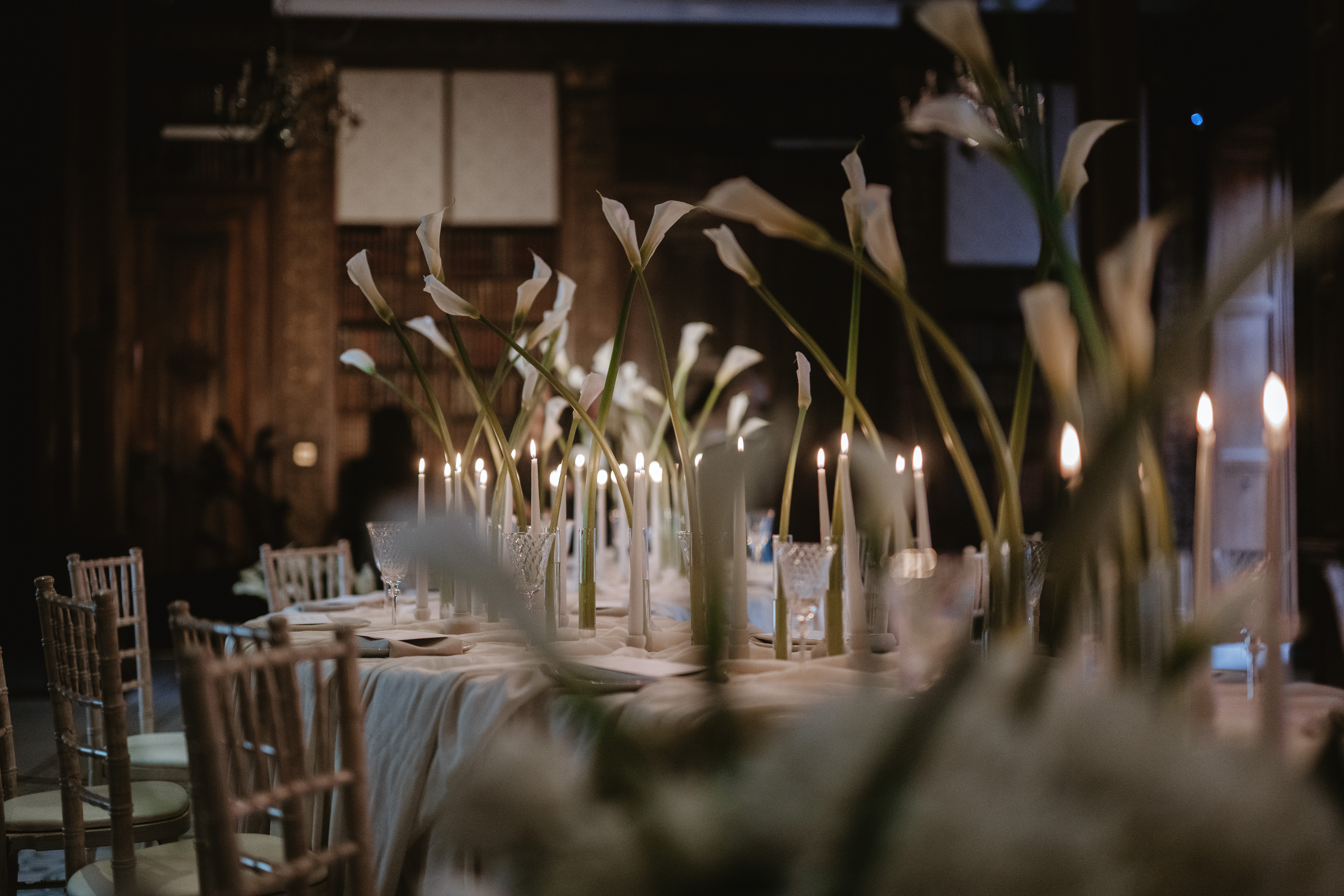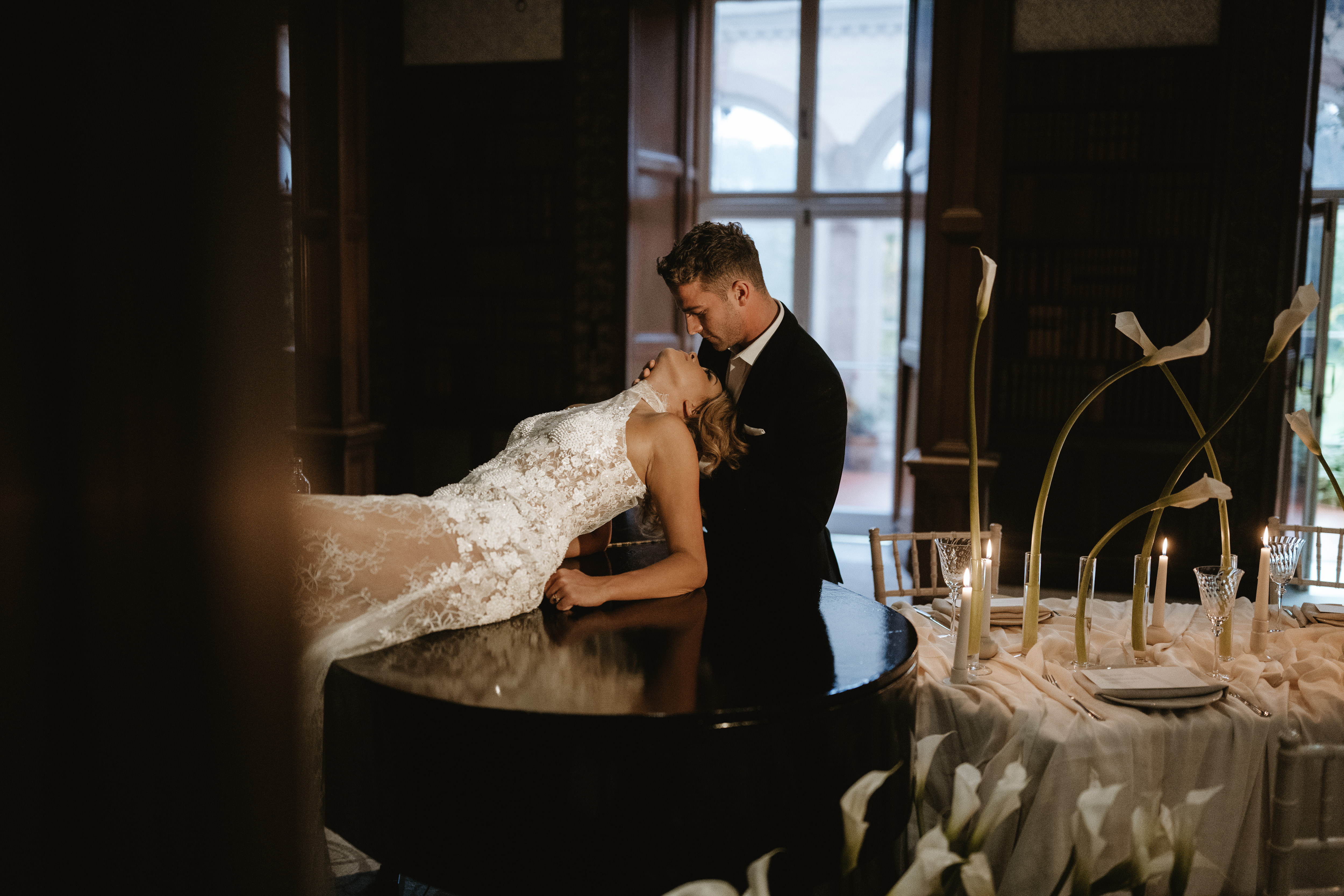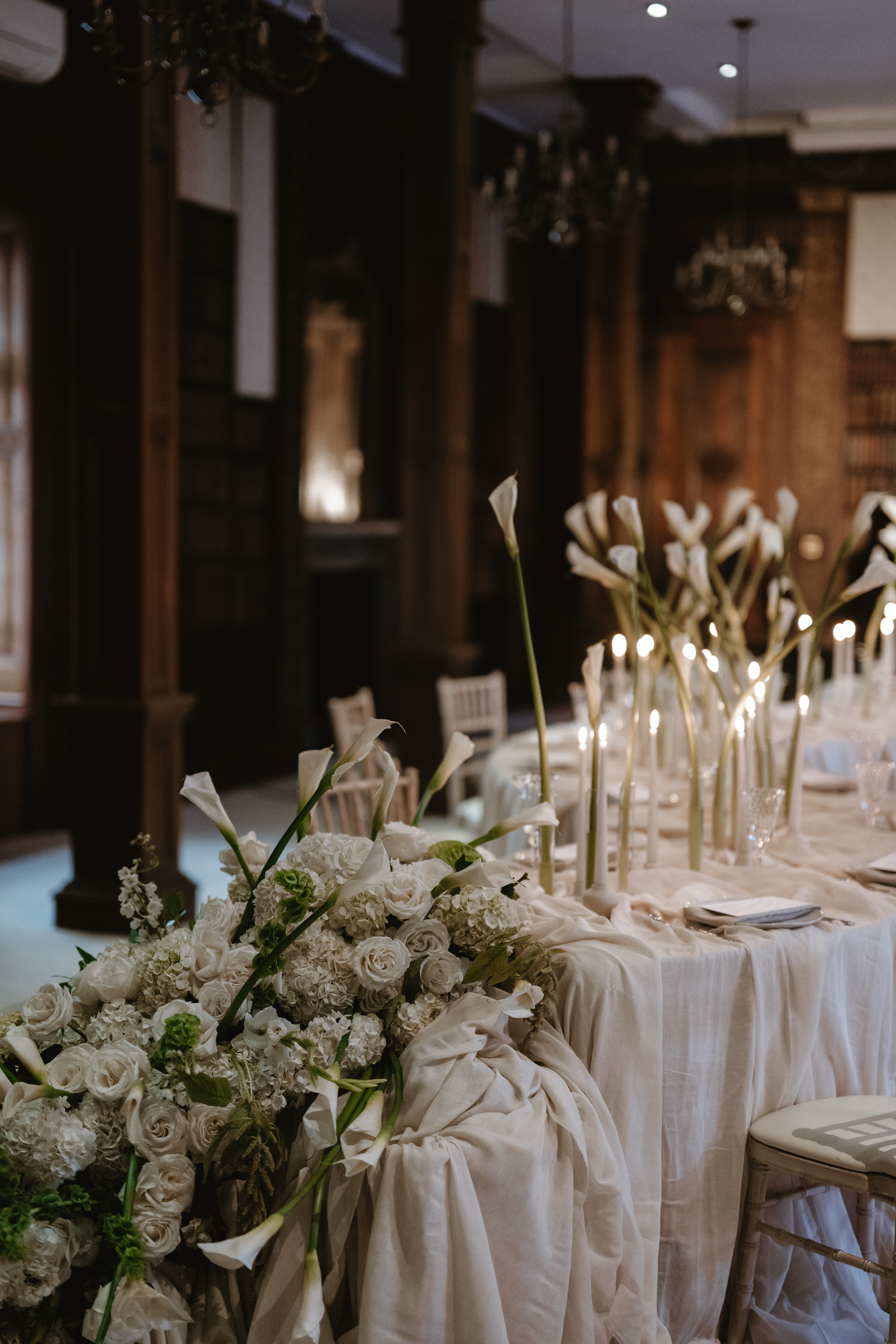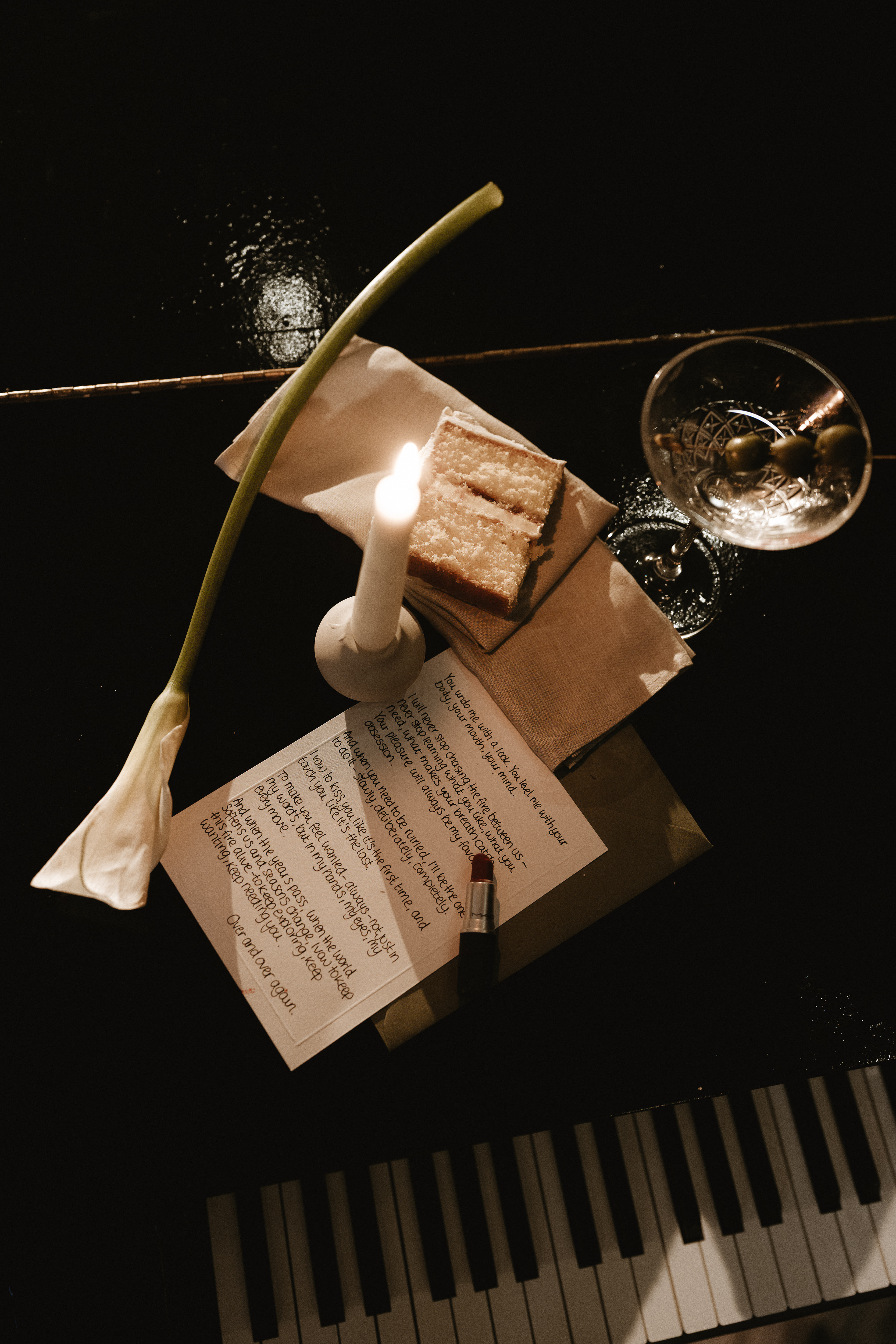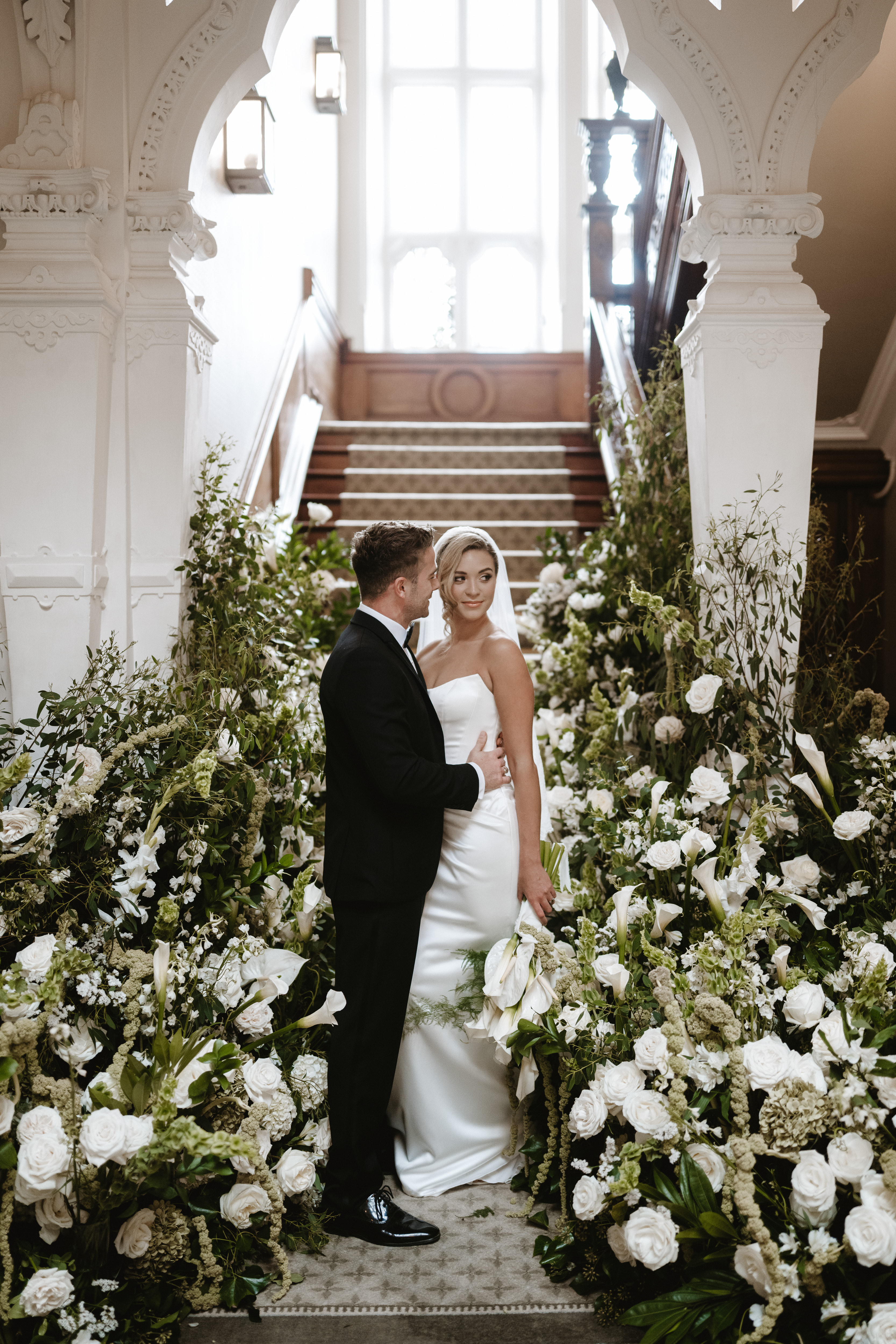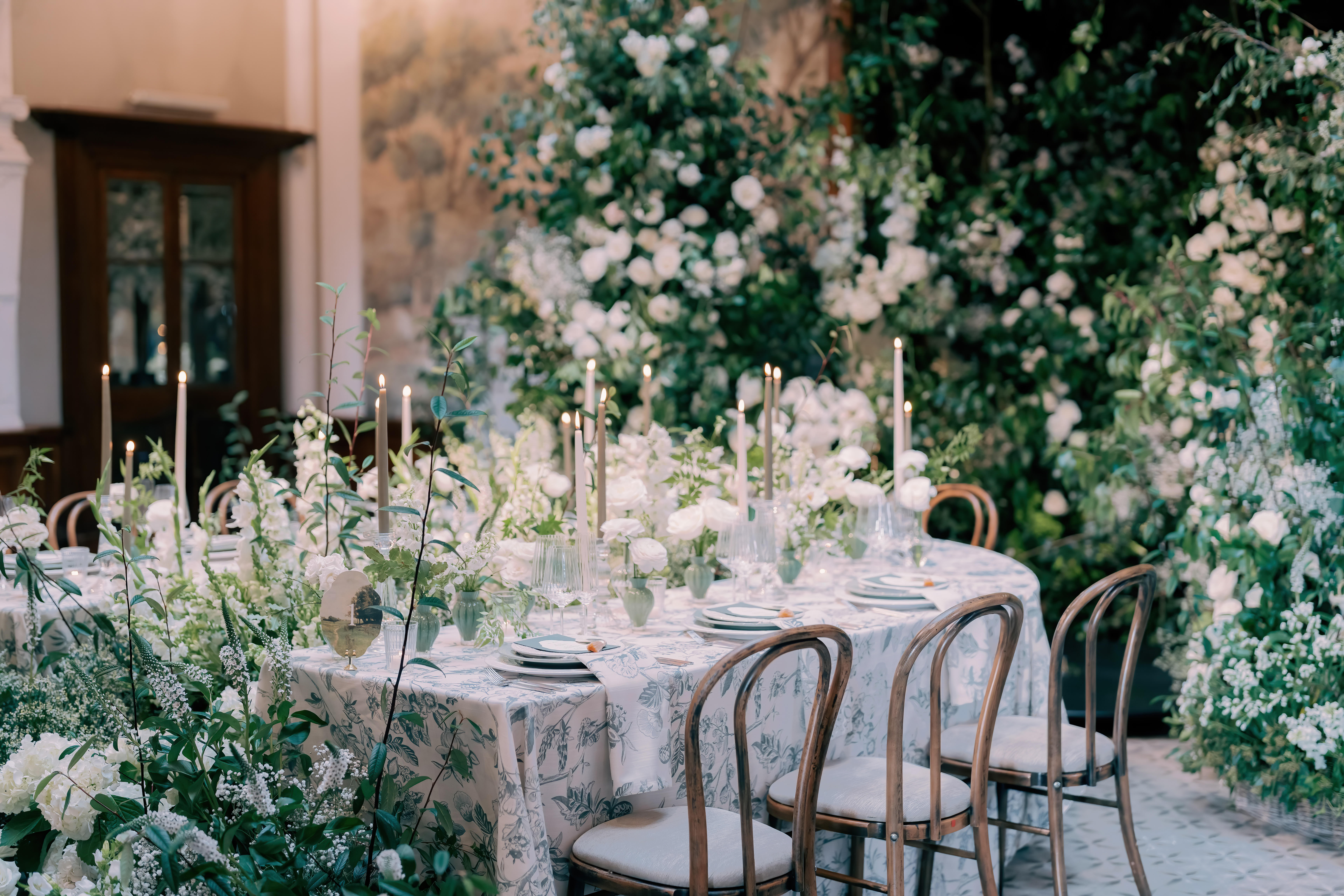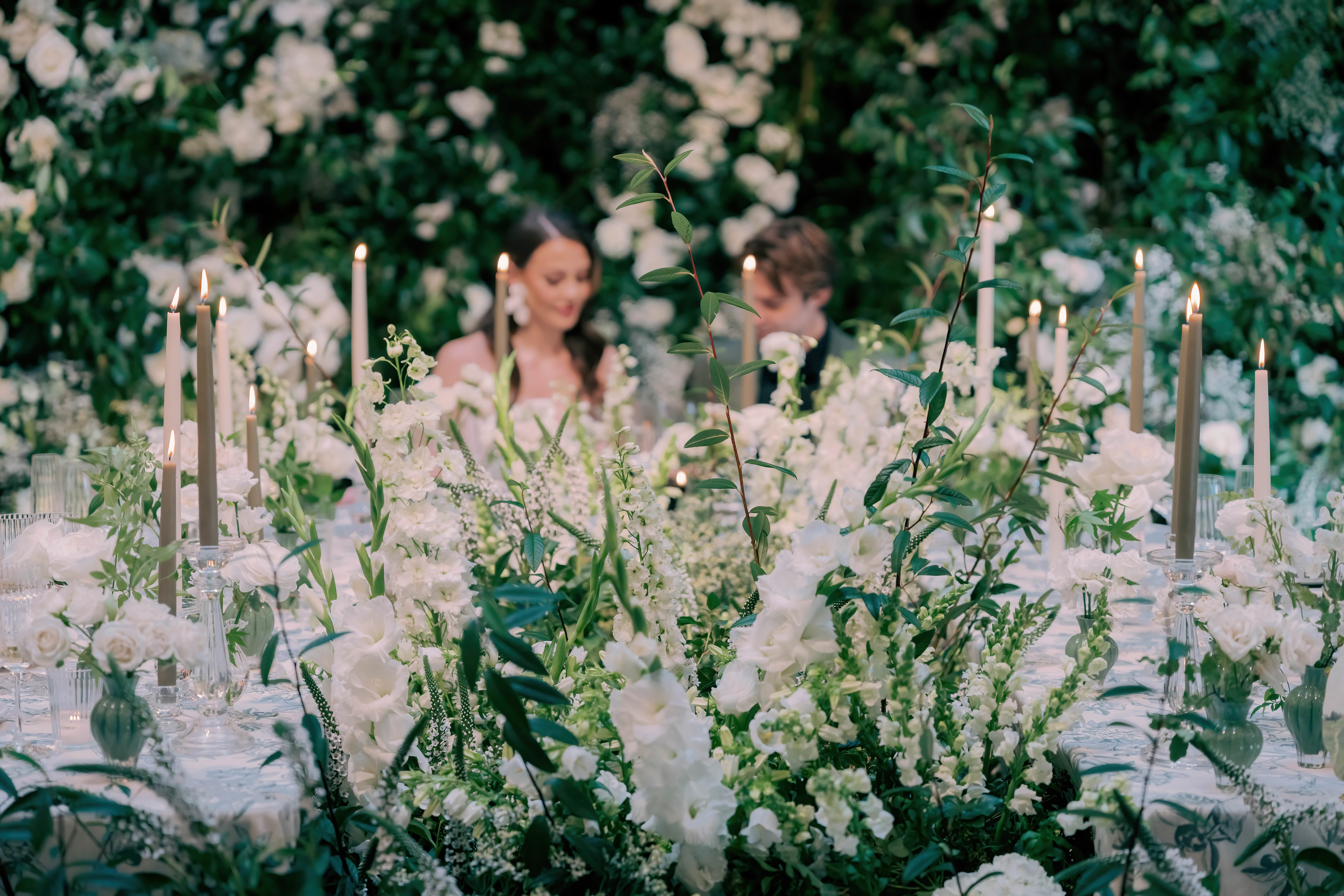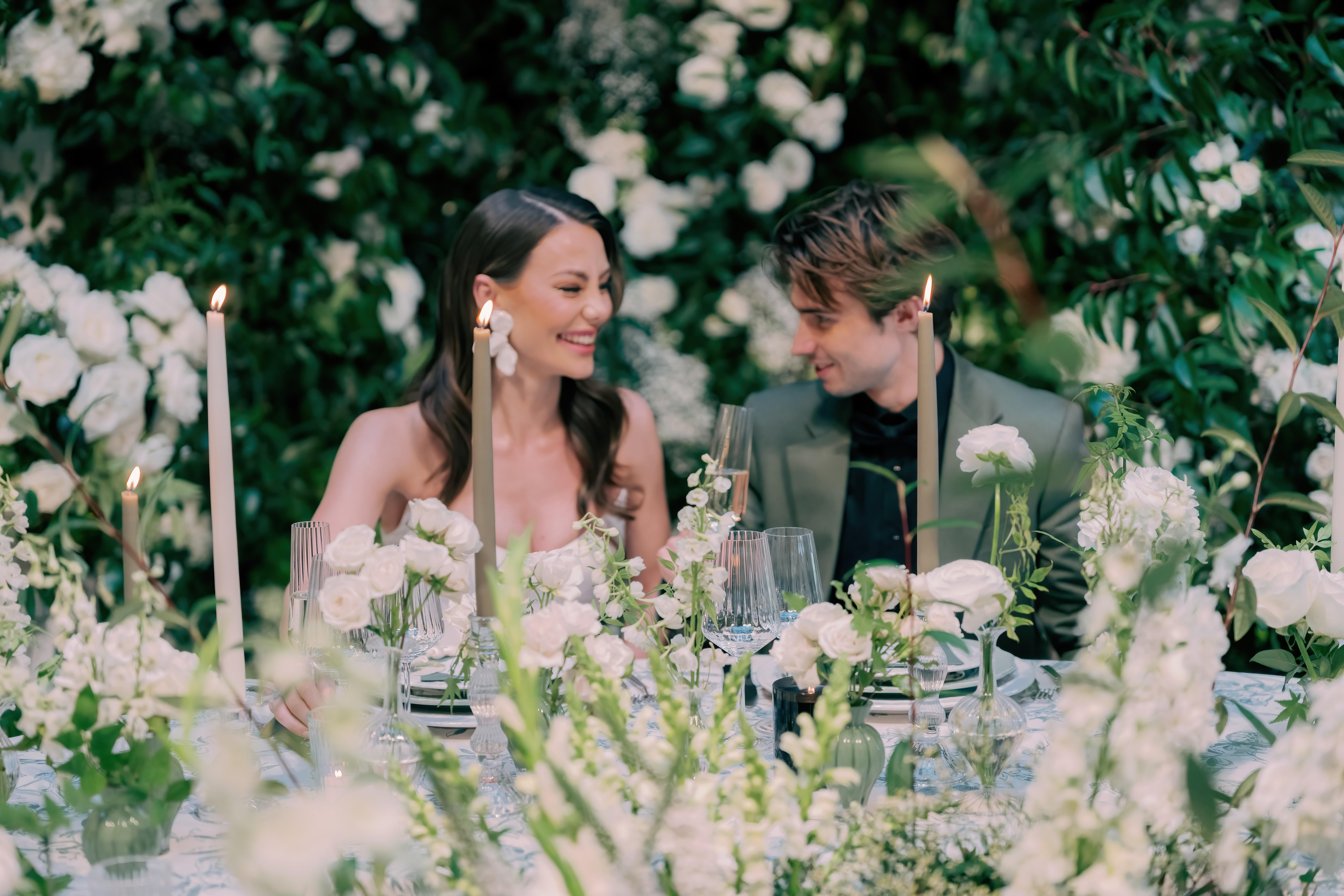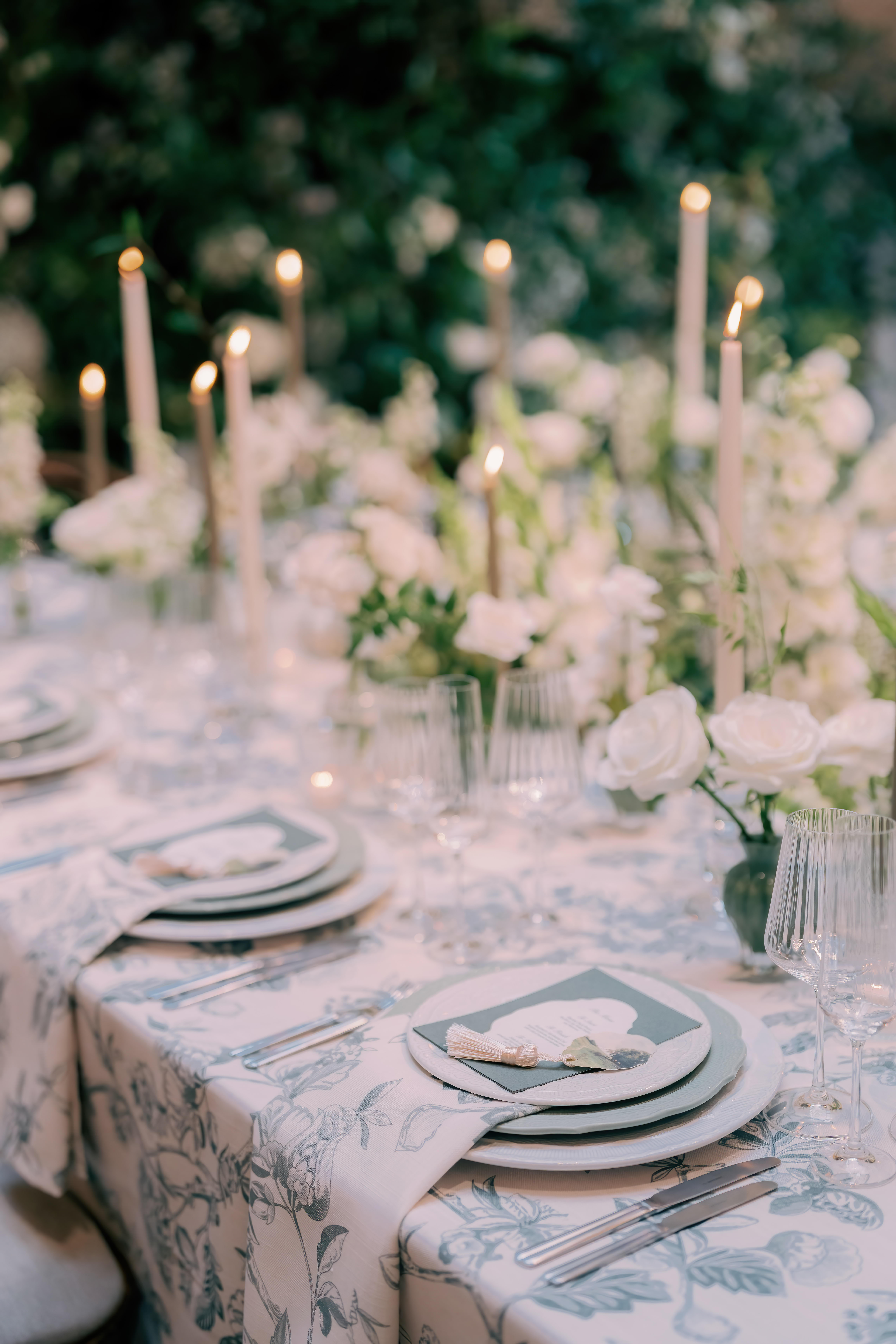A Romantic Autumn Wedding at Clevedon Hall: Elegant Manor House Celebrations with a Chinese Tea Ceremony
If you’re dreaming of an elegant English manor house wedding with timeless styling, meaningful traditions, and unforgettable guest experiences, this real wedding at Clevedon Hall is full of inspiration.
Set against the breathtaking backdrop of this historic Somerset wedding venue, Candice & Leo celebrated their October wedding day with romantic pastel florals, heartfelt cultural moments, and joyful evening celebrations, all designed to feel relaxed, intimate, and truly personal. In their own words they tell us all about their dream wedding day ...
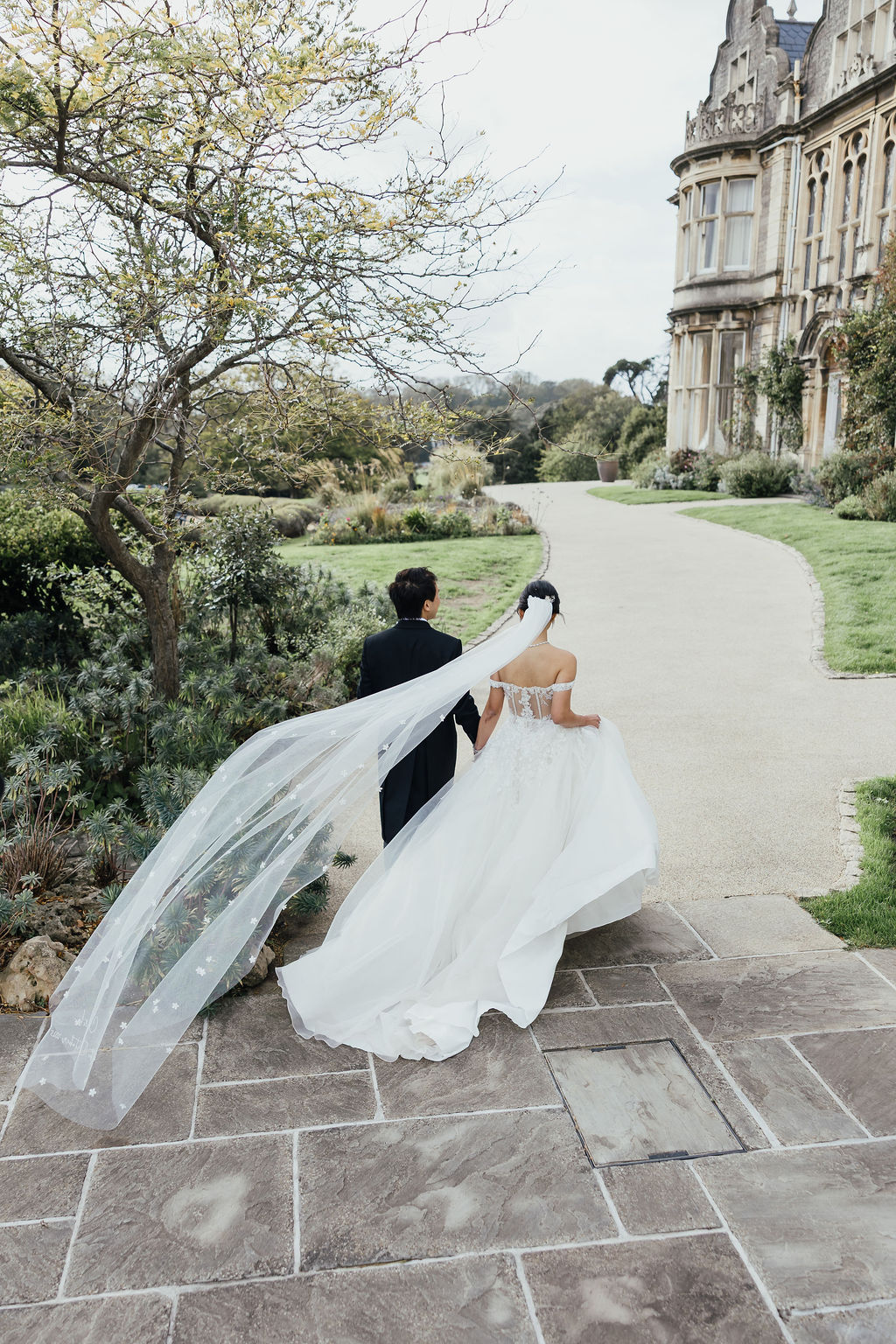
Why We Chose Clevedon Hall for Our Wedding Venue
From the very beginning, we had a clear vision for our wedding day: an English manor house setting that felt elegant without being over the top, full of character, warmth, and natural spaces that could flow seamlessly throughout the day.
When we first visited Clevedon Hall, walking up the winding path toward the house, it immediately felt like the perfect fit. As the architecture came into view, the beautiful proportions, light-filled rooms, and carefully maintained gardens, we knew it matched exactly what we had imagined.
Clevedon Hall offered the balance we were looking for: a real sense of occasion in a setting that still felt welcoming and relaxed.
Because our wedding took place in October, when the weather can be unpredictable, it was important to choose a venue with strong options both indoors and outdoors. The flexibility of Clevedon Hall’s spaces meant we could plan the day with confidence, whatever the conditions.
We were also mindful of the guest experience. Many of our friends and family were travelling from across the world, and being able to accommodate our closest loved ones in the beautiful on-site bedrooms, combined with having exclusive use of the house, made the celebrations feel even more special and unhurried.
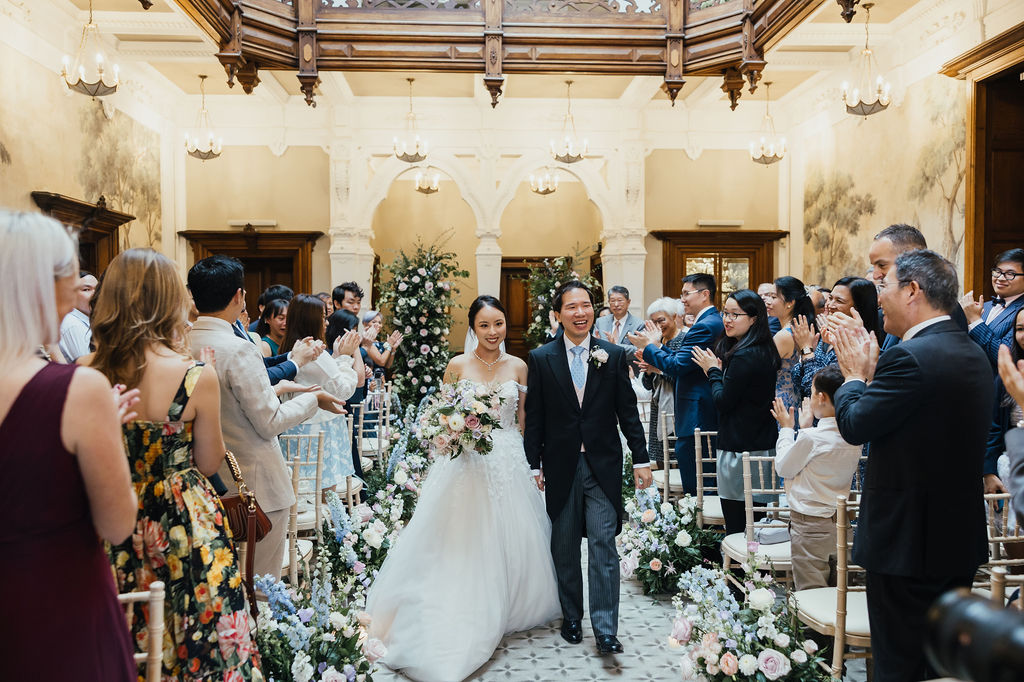
Special Moments from Our Clevedon Hall Wedding Day
There were so many unforgettable moments throughout the day, but a few stand out in particular.
A Meaningful Chinese Tea Ceremony
One of the most emotional parts of the day was our Chinese tea ceremony. It gave us the opportunity to share private, heartfelt moments with our parents before the wider celebrations began.
Filled with warmth and gentle laughter, it allowed us to pause together as families and reflect on the meaning of the day.
.jpg)
The Ceremony in the Great Hall
Our ceremony in the Great Hall was another highlight. Walking down the staircase and seeing our vision brought to life was incredibly moving.
Continuing along the aisle and looking into the faces of our guests gathered around us was a moment we will never forget. We felt so lucky to have so many people we hold dear witnessing such an important milestone in our lives.
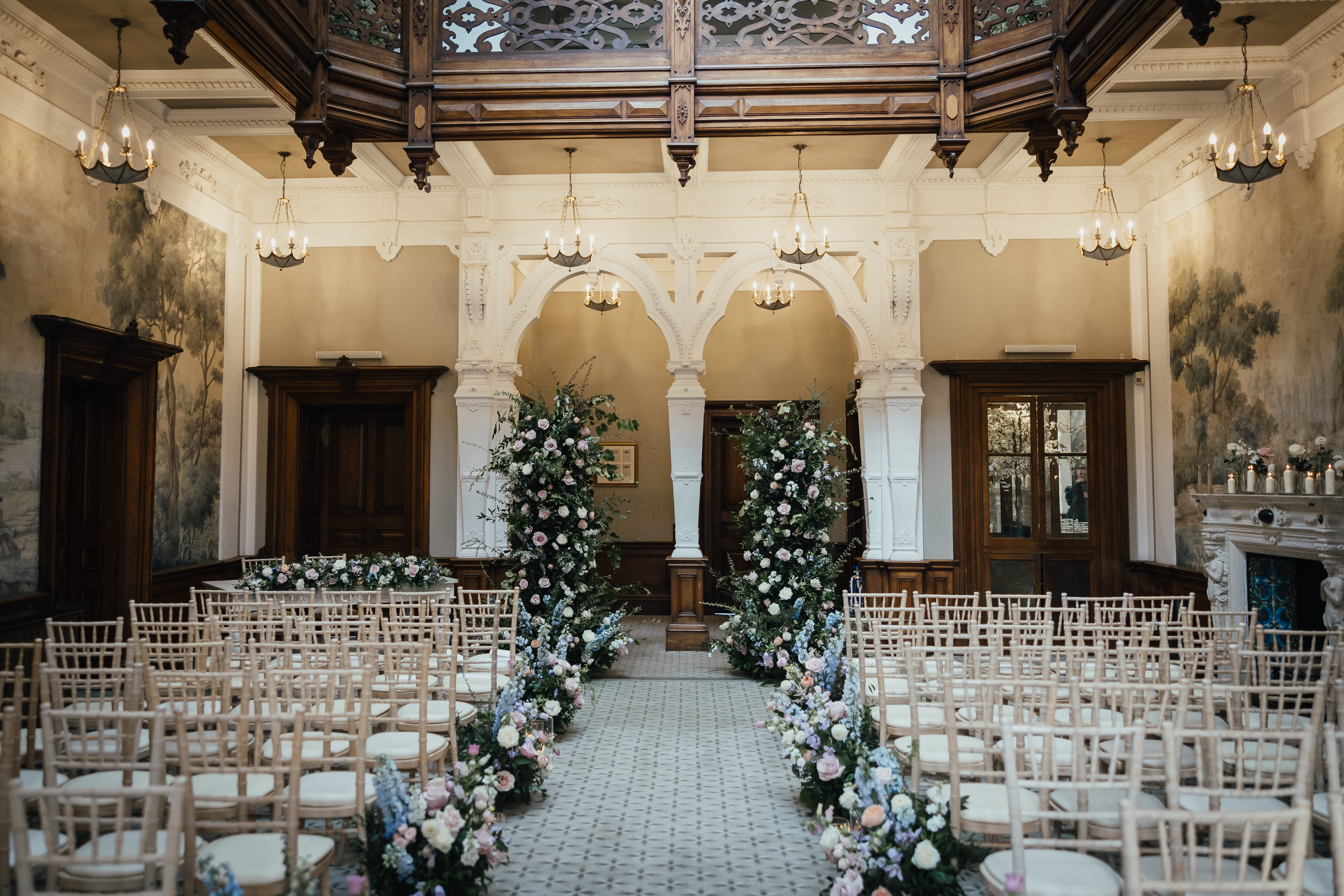
Golden Hour Wedding Portraits
Later in the afternoon, as the light softened into golden hour, we stepped outside for some quiet time together and a few stunning portraits as a newly married couple.
Clevedon Hall provided the most beautiful backdrop, and those private moments before returning to the celebrations were truly magical.
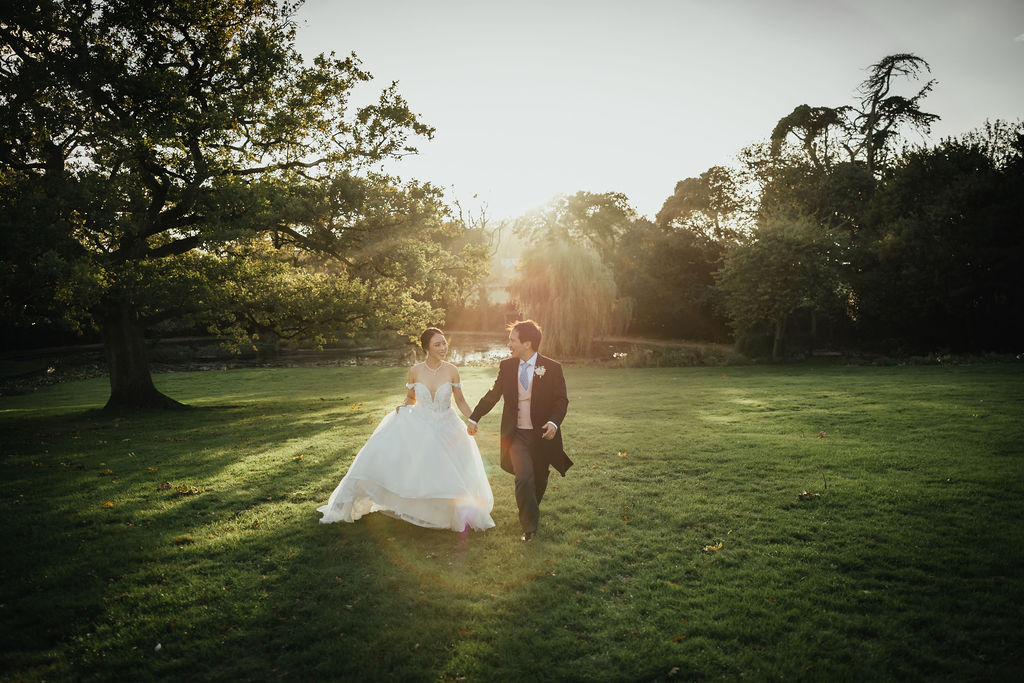
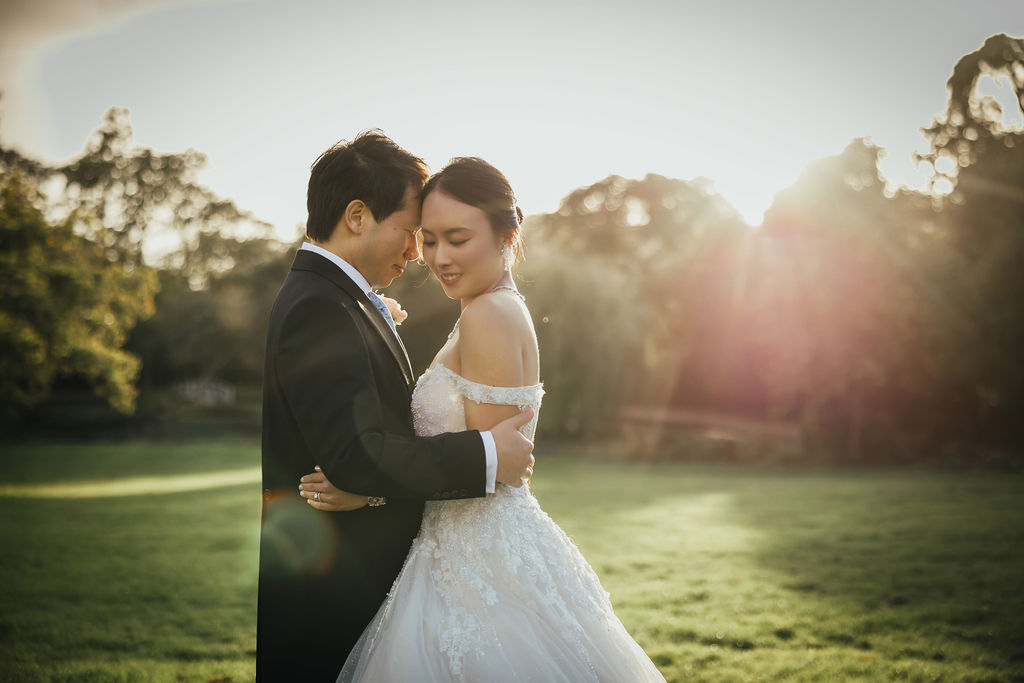
Wedding Traditions: Honouring Our Hong Kong Heritage
One of the most meaningful traditions we incorporated was a traditional Chinese tea ceremony, reflecting our Hong Kong heritage.
It was important to us that this formed part of the day as a way of honouring our families and acknowledging the cultural journey that has shaped us.
The tea ceremony was held separately with each set of parents, creating two intimate and personal moments. During the ceremony, we knelt and served tea as a gesture of respect and gratitude, thanking our parents for their love, guidance, and support.
In return, they offered wisdom and blessings for our marriage, marking the formal joining of our families.
Our maid of honour shared traditional auspicious sayings, which delighted our parents and filled the room with laughter, making the ceremony feel both deeply meaningful and wonderfully warm.
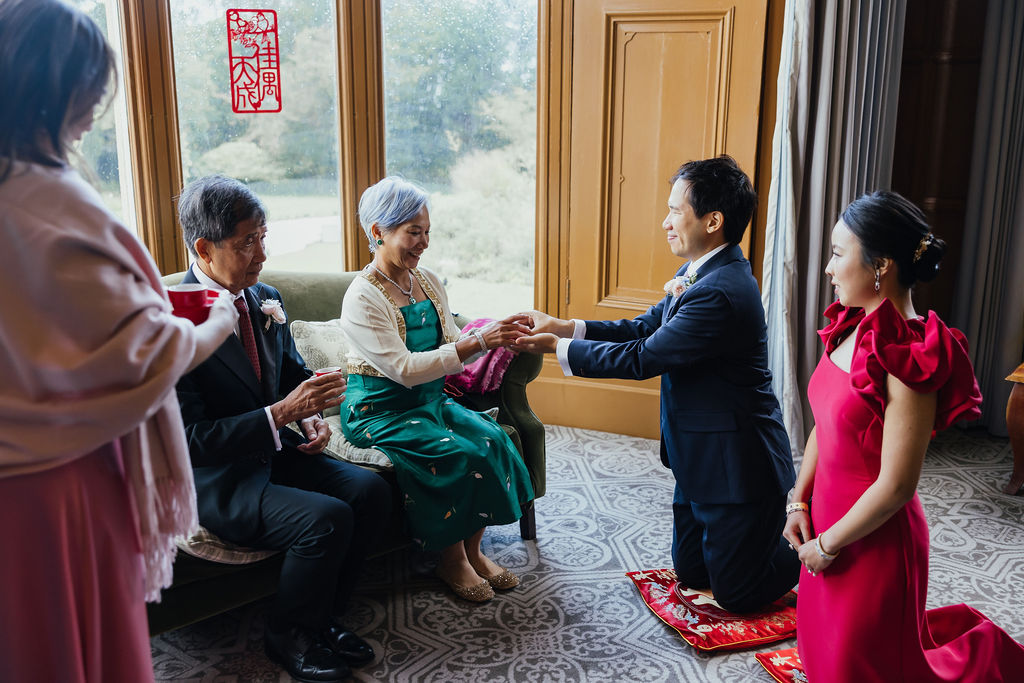
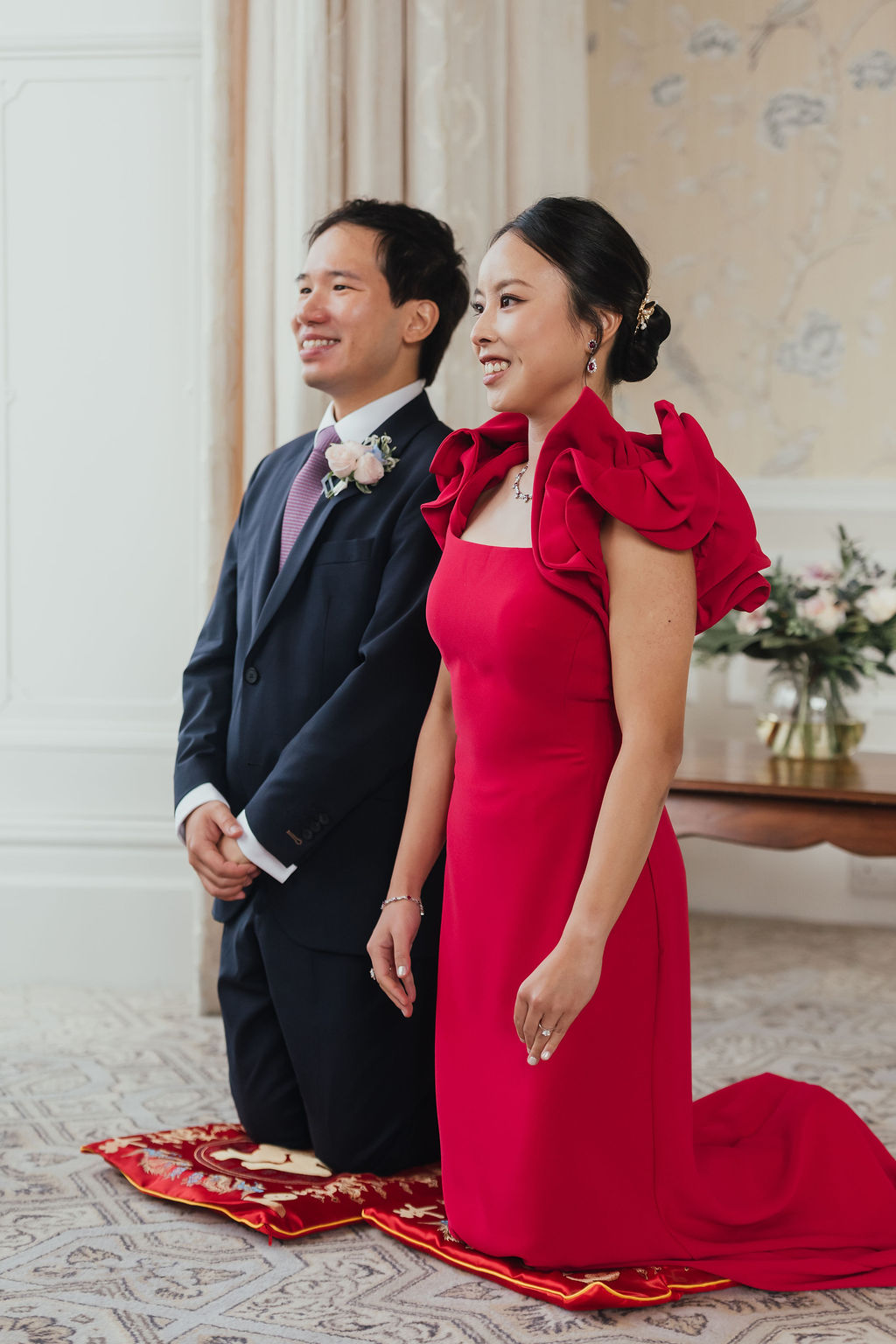
Wedding Styling: Pastel Florals and Romantic Manor House Elegance
Our wedding styling centred around a romantic pastel palette of soft pinks, lilacs, creams, and gentle blues.
We wanted to create a setting that felt elegant and intimate while enhancing the natural beauty of Clevedon Hall.
Ceremony Flowers in the Great Hall
For the ceremony, a broken floral arch framed the space beautifully against the Hall’s historic architecture.
The aisle was lined with meadow-style arrangements in pastel tones and natural greenery, creating a relaxed, romantic atmosphere.
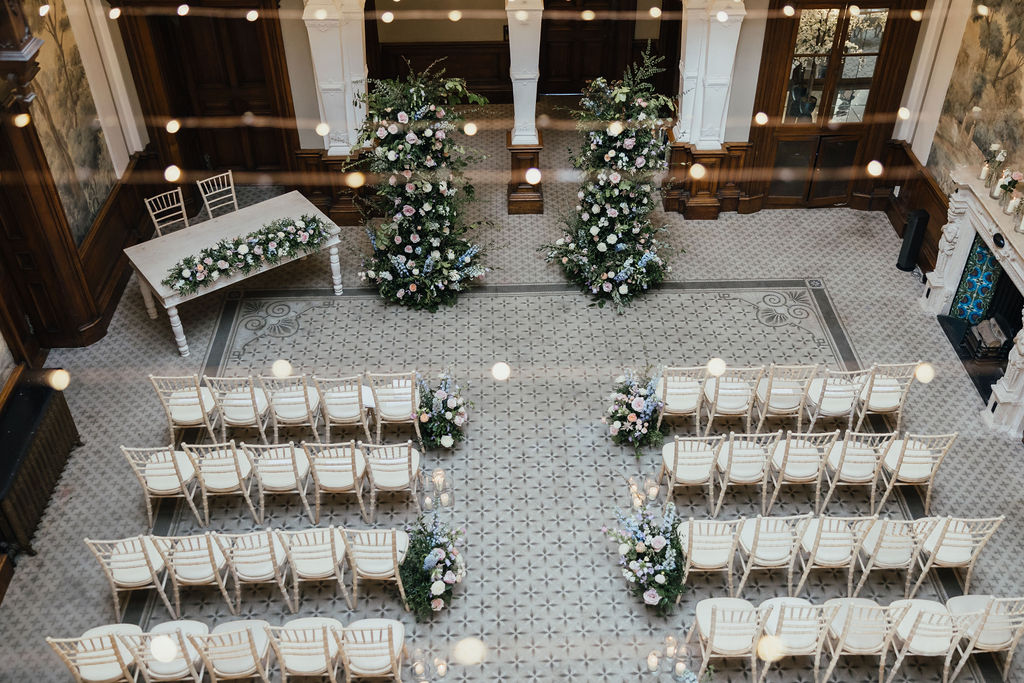
Wedding Breakfast in the Grand Library
For the wedding breakfast, we chose the Grand Library. The richness of the wood panelling and book-lined walls created such an intimate setting.
Floral centrepieces echoed the ceremony arrangements, while trailing foliage wrapped around the Library pillars, softening the structure of the room and tying everything together seamlessly.
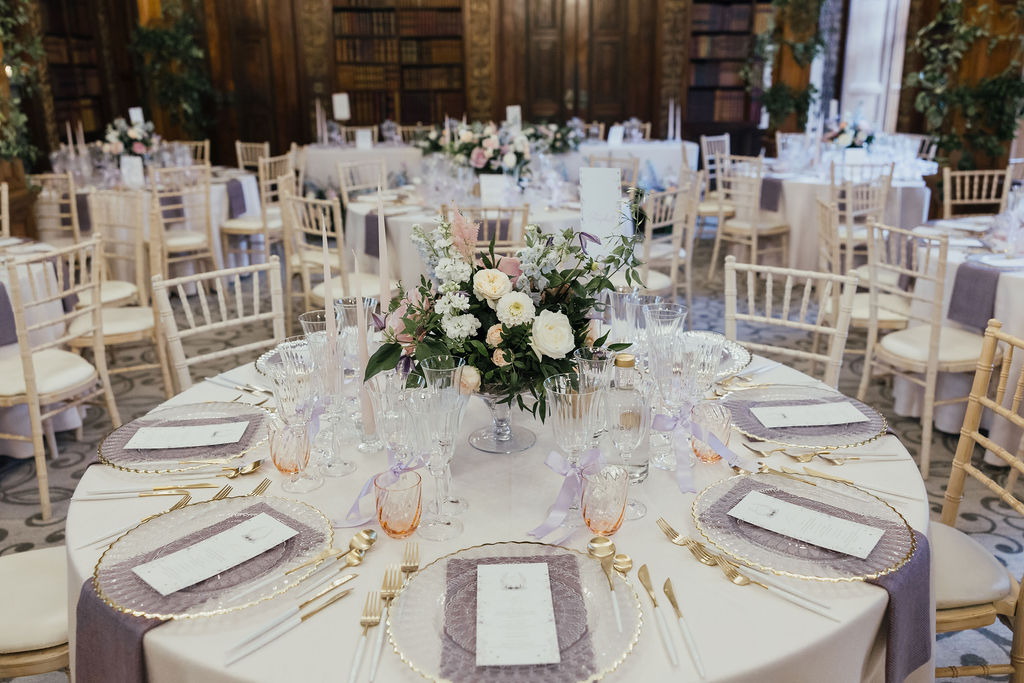
Wedding Outfits: Timeless Style with Cultural Meaning
Our outfit choices blended tradition with classic elegance.
Tea Ceremony Looks
For the Chinese tea ceremony, red was central, symbolising luck, happiness, and prosperity in Chinese culture. We chose outfits that honoured tradition while still complementing the overall Western styling of the day.
.jpg)
Ceremony and Wedding Breakfast
For the main ceremony, we opted for timeless, classic looks:
- A traditional morning suit for the groom
- An off-the-shoulder gown with a cathedral-length veil for the bride
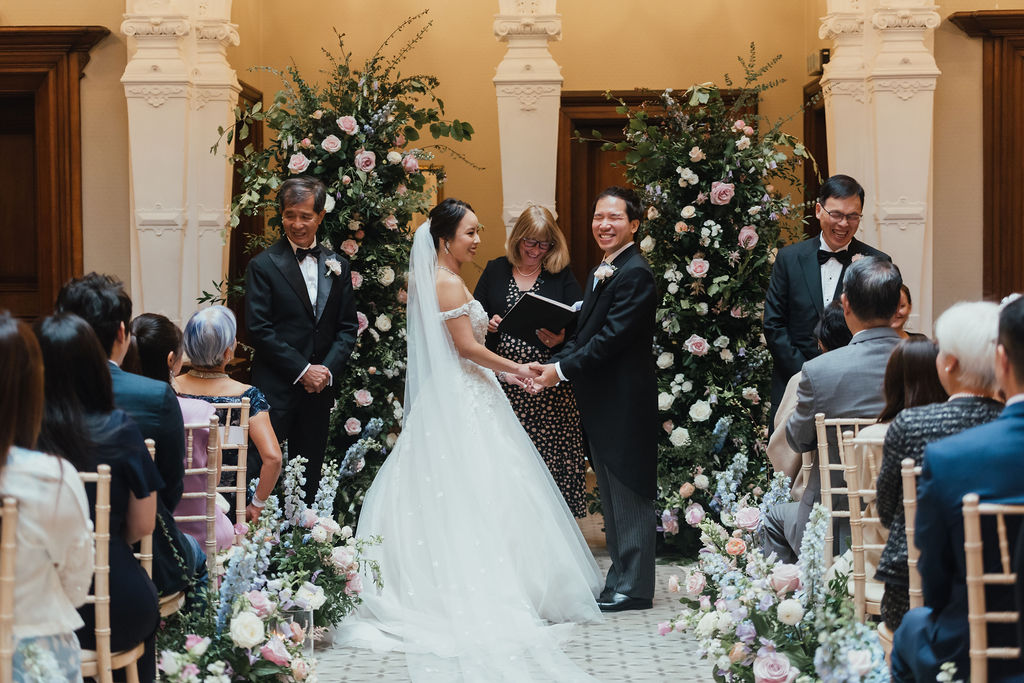
Evening Reception Outfit Change
For the first dance and evening celebrations, we changed into:
- A classic tuxedo
- A princess-cut gown with a V-neckline
The flowing silhouette of the dress created such beautiful movement on the dance floor.
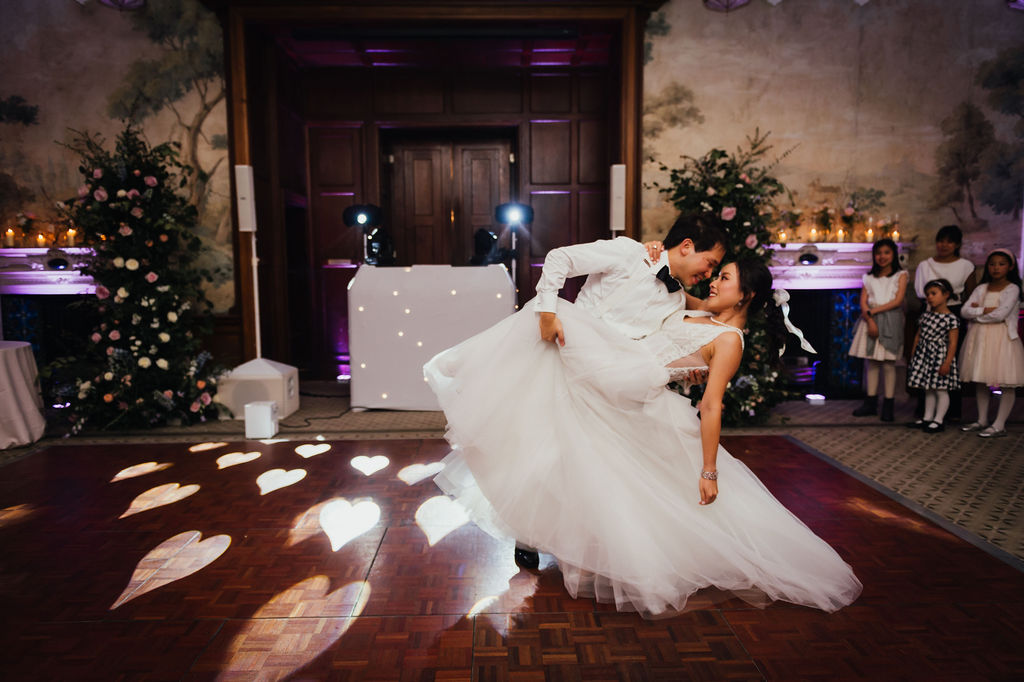
Guest Experience Highlights: Fun Details That Made the Day Special
One of our biggest priorities throughout planning was ensuring our guests truly enjoyed the day.
With friends and family travelling from across the UK and overseas, and several children among our guests, we wanted everyone to feel relaxed and included.
We incorporated fun elements throughout the day, including:
- A gelato bike, which was a highlight for guests of all ages
- A live illustrator, capturing special moments and creating portraits for guests to take home
- An evening photo booth, which became a focal point of laughter, memories, and heartfelt guestbook messages
These thoughtful touches helped create a joyful atmosphere from start to finish.


Words of Wisdom for Future Couples
Wedding planning can quickly become all-consuming, so our biggest piece of advice would be to make time for each other away from the planning process.
Whether it’s regular date nights or simply switching off from wedding conversations altogether, taking time to enjoy each other’s company helps keep everything in perspective.
A Clevedon Hall Wedding to Remember
This romantic autumn wedding at Clevedon Hall was the perfect blend of timeless English manor house elegance, meaningful cultural tradition, and unforgettable guest experiences.
From pastel florals in the Great Hall to golden hour portraits in the gardens, every moment felt personal, joyful, and full of love.
If you’re searching for a luxury Somerset wedding venue with exclusive-use charm, beautiful indoor and outdoor spaces, and the perfect backdrop for a truly unforgettable celebration, Clevedon Hall is an extraordinary choice.
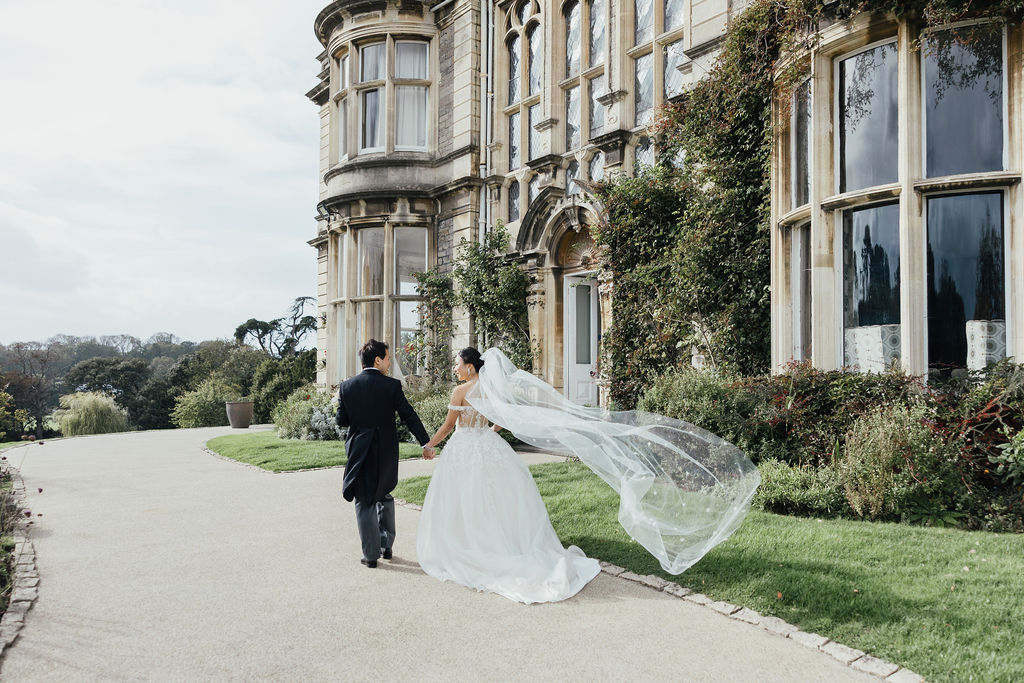
Photography @juliaandyou
Planner: @ann.nicholas.weddings
Florist: @daisylanefloral
.svg)
.svg)
.svg)



.webp)

